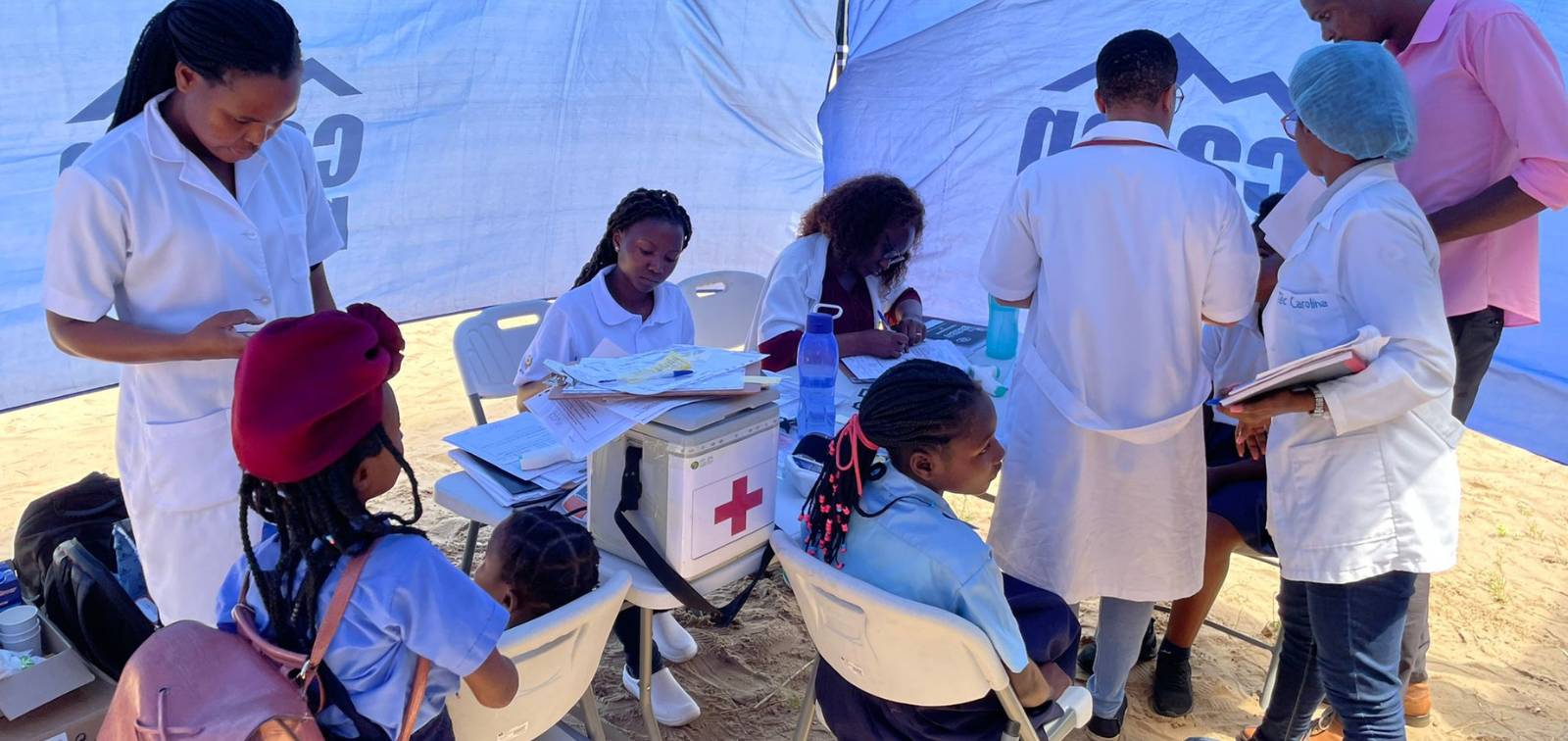New Tablet Shows Promise for the Control and Elimination of Intestinal Worms
The ALIVE clinical trial shows that a tablet combining albendazole and ivermectin is safe and more effective than albendazole alone in treating soil-transmitted helminths
11.01.2025
A new tablet combining albendazole and ivermectin is safe and more effective than albendazole alone in treating Trichuris trichiura and other soil-transmitted helminths (STH), according to a clinical trial conducted by the STOP consortium and led by the Barcelona Institute of Global Health (ISGlobal), a centre supported by “la Caixa” Foundation. The findings, published in The Lancet Infectious Diseases, open opportunities to improve the control of these neglected tropical infections, which affect around 1.5 billion people worldwide.
Soil-transmitted helminthiases (STH) are caused by four species of parasitic worms (Ascaris lumbricoides, Trichuris trichiura, and the hookworms Ancylostoma duodenale and Necator americanus) that are transmitted through contact with contaminated soil or water. They have a significant impact on nutrition and health, particularly in children and women of reproductive age living in endemic areas of Latin America, Asia and sub-Saharan Africa.
The current STH control strategy relies on regular deworming treatments with albendazole for at-risk populations, along with improvements in water, sanitation, and hygiene. Albendazole is highly efficient against Ascaris but its efficacy against T. trichiura has been declining, probably due to emerging drug resistance. Additionally, albendazole is not effective against Strongyloides stercoralis, another helminth that has been added to the list of intestinal parasites requiring control measures.
Two drugs in one tablet
To address these gaps, the EDCTP-funded STOP consortium tested an innovative tablet combining a fixed dose of albendazole and ivermectin. Ivermectin has been shown to be more effective against T. trichiura when combined with albendazole, and is the drug of choice to treat S. stercoralis and other parasitic infections.
“This fixed-dose co-formulation (FDC) has several advantages. It is easy to administer, as it is one single pill and does not require dose adjustments based on the child’s weight,” explains project leader Jose Muñoz, ISGlobal researcher and head of the International Health Department at Hospital Clinic Barcelona. “Also, we hope that combining two drugs with different mechanisms of action will reduce the risk of the parasites becoming drug-resistant,” he adds.
One clinical trial in three African countries
The ALIVE clinical trial, conducted in Ethiopia, Kenya and Mozambique, tested the safety and efficacy of the FDC in school-aged children (aged 5 to 18 years) infected with T. trichiura, hookworms, S. stercoralis or a combination. The children were randomly divided into three treatment groups: group 1 received a single dose of albendazole; group 2 received one dose of the FDC (FDCx1); and group 3 received three doses of the FDC (FDCx3) over three consecutive days.
Safety first
Phase 2 of the trial focused on safety. A small number of participants were recruited and treated sequentially according to weight, to monitor any adverse effects caused by higher-than-usual doses of ivermectin (above 200 µg/ml). No serious adverse effects were observed, and side effects were similar to those in the albendazole group. This allowed the trial to proceed to phase 3, where efficacy was assessed in a much larger number of participants, alongside continued safety monitoring.
In total, 4,353 children were screened for STH infections and 1,001 were randomised for treatment. Of those infected, 63% were positive for T. trichiura, 36% for hookworms and 10% for S. stercoralis.
Higher efficacy against T. trichiura and hookworms
Treatment efficacy was assessed based on cure rates (absence of eggs in stool samples post-treatment) and reduction in the number of eggs in stool compared to before the treatment. For T. trichiura, the FDC achieved higher cure rates at both regimens (97% for FDCx3, 83% for FDCx1) compared to albendazole alone (36%). For hookworms, the FDCx3 regimen showed a higher cure rate (95%), while the FDCx1 regimen was similar to albendazole (79% and 65% respectively). For S. stercoralis, the sample size was too small to assess efficacy, but the existing evidence suggests that the FDC would also be more effective, since ivermectin is far more effective than albendazole against this parasite.
Although most infections were classified as light, both FDC regimens achieved higher egg reduction rates than albendazole alone.
Implications for public health
“This is a pivotal trial that opens up the possibility of controlling all species of STH, including Strongyloides, and may lead to reconsider elimination goals that were deemed unattainable with albendazole alone,” says Alejandro Krolewiecki, clinical trial leader. The next step is to conduct larger-scale studies, such as the ongoing trial led by STOP2030, to further evaluate the safety of the FDC in the context of mass deworming campaigns.
Defining optimal implementation strategies will also be essential if the FDC is to be adopted by national programmes. The trial findings suggest that a single-dose regimen of the FDC may be simple to apply in mass deworming activities, while the three-day regimen, which offers superior efficacy, may be better for individual treatment decisions, or for programmes aiming to completely eliminate STH from the population.
"With its child-friendly formulation – orodispersable and mango-flavored - and its high acceptance, this tablet holds great potential for advancing health outcomes in regions affected by these diseases," says Stella Kepha, researcher from the Kenya Medical Research Institute (KEMRI).
Reference
Krolewiecki A, Kepha S, Fleitas PE et al. Albendazole–ivermectin co-formulation for the treatment of Trichuris trichiura and other soil-transmitted helminths: a randomised phase 2/3 trial.The Lancet Infectious Diseases. https://doi.org/10.1016/S1473-
Funder
The ALIVE trial and the STOP projects were supported by the EDCTP2 program (grant number RIA2017NCT-1845 and PSIA2020-3072) with funding from Mundo Sano, the UK Medical Research Council, the UK FCDO and the European Union. www.stoptheworm.org



